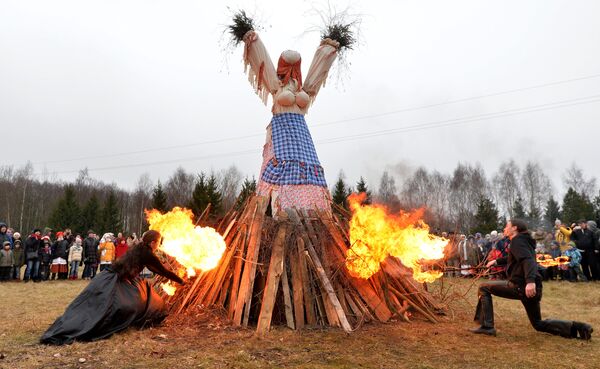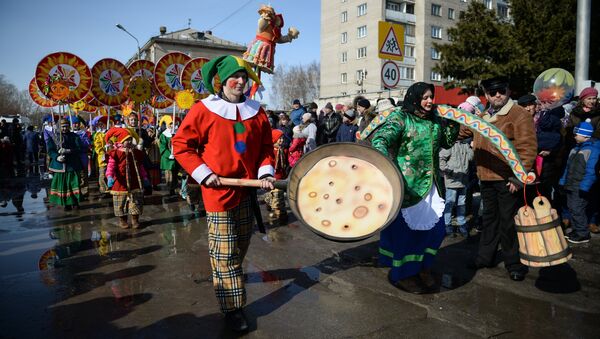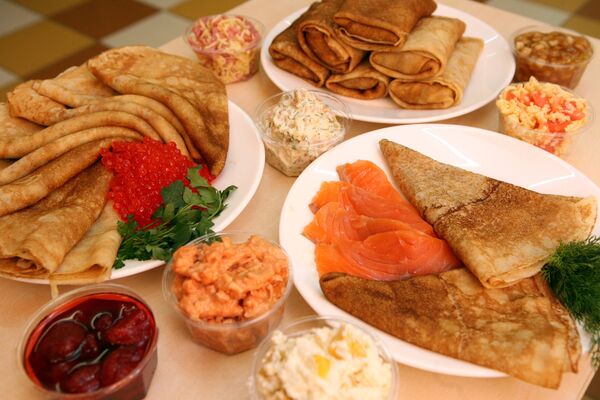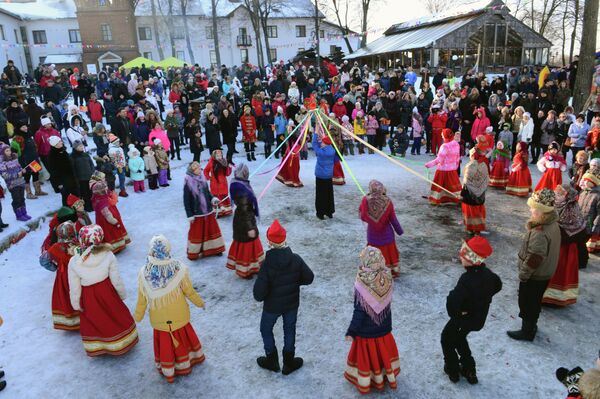The tradition to celebrate Maslenitsa takes its roots in pagan times. Prior to the adoption of Christianity, the holiday lasted for two weeks. Nowadays, this ancient Eastern Slavic holiday is celebrated during the last week before Great Lent, an important 40-day-long fasting that precedes Orthodox Easter.
With a fast on the horizon, what better way to prepare then eating your fill of delicious food? Baking bliny — thin pancakes or crepes — is one of the main activities of Maslenitsa. From early times, this was the way to appease the pagan gods and attract more sunshine and an early spring. Round pancakes were a kind of sacrificial bread — a gift to the gods.
Bliny appeared in Russia more than a thousand years ago. Since then, the recipe has undergone many changes. Traditionally, every woman has her own secret for cooking pancakes. They can be made from different types of flour and with a variety of sweet or savory ingredients such as butter, sour cream, honey, eggs, meat, fish or vegetable stuffing. To this day, bliny are considered a traditional Russian dish.
In Ancient Russia, there was a custom to commemorate the dead with the first pancake. But bliny are not the only a treat for the holidays. People try to eat lots of other yummy dishes, too, ahead of the long and strict fasting.
The week of Maslenitsa is also a great time for outdoor fun: dancing, folk singing and burning huge bonfires. The most important tradition is to burn an effigy made of straw that symbolizes the departing winter.
Each day of the week had its own customs and traditions. The first day of Maslenitsa was "Welcoming" Monday. On this day, people built ice slides. In ancient times, it was believed that the further you slid down and the louder the noise and laughter was, the better harvest would be the following season.
"Zaigrysh," the second day of the week marked the start of other festivities. People played games and ate pancakes. But for unmarried girls this day was particularly significant: important matchmaking arrangements were held on Tuesday.
Mothers-in-law treated their sons-in-law with lots of pancakes on "Sweet-tooth" Wednesday, and on Friday, it was their turn to visit sons-in-law and eat bliny. On Fat Thursday, fun festivities lasted all day long along with eating, drinking and dancing. One of the most beloved and beautiful rites on this day was riding horses clockwise around the settlement.

Daughter-in-law parties were held on Saturdays where young daughters-in-law invited their husbands' relatives and showered them with gifts and treats.
The last day of Maslenitsa, "Send-off" is also known as "Forgiveness Sunday." There is a tradition to ask everyone to forgive you for any misdeeds you have done. The highlight of the day is burning effigies. In this way, people bid farewell to the long winter and welcome the much-anticipated spring.




